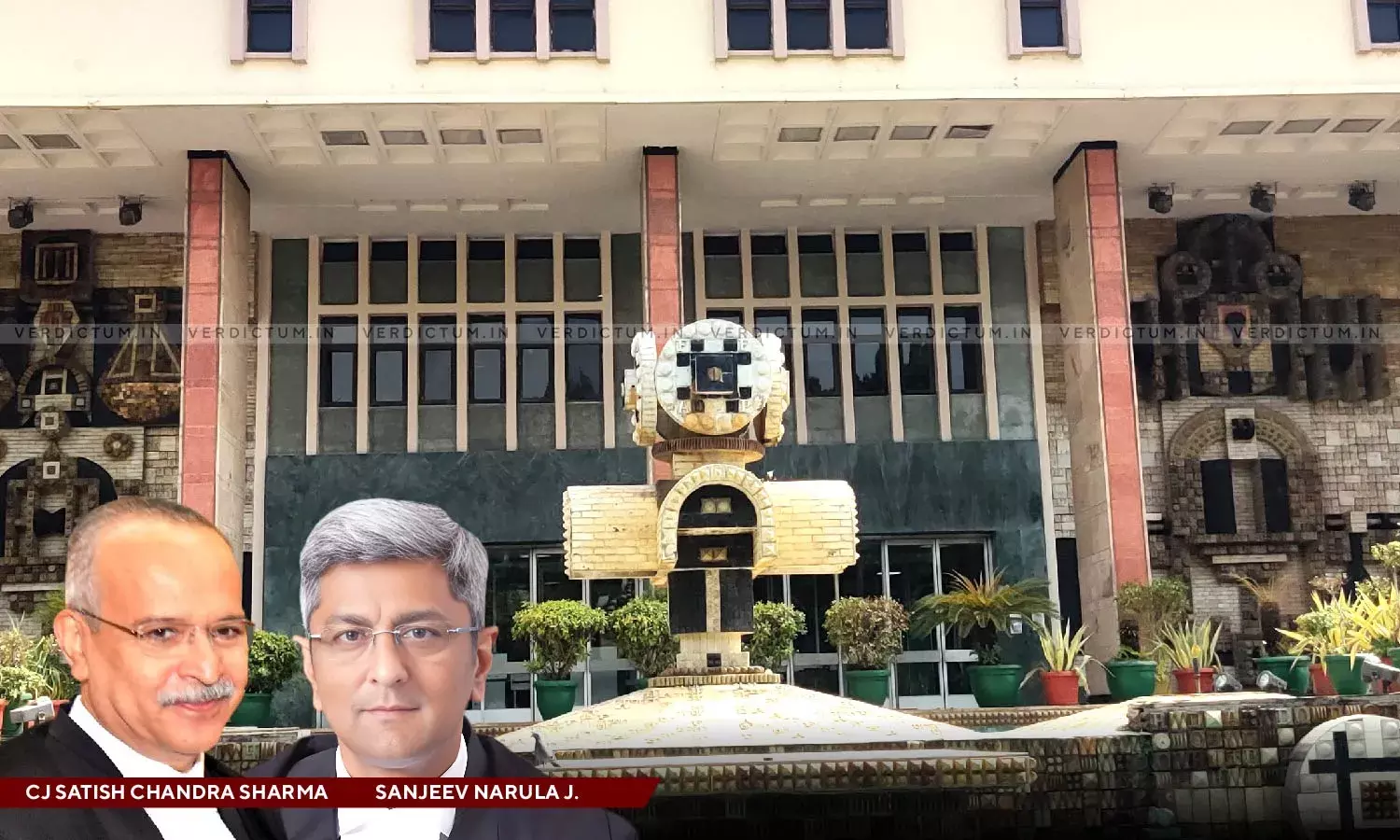Delhi HC Refuses To Interfere With Labour Court Award Reinstating A DTC Conductor Terminated For 15 Days’ Absence

The Delhi High Court has refused to interfere with an order reinstating DTC (Delhi Transport Corporation) conductor who was terminated from service for being absent for 15 days in the year 1991.
The Court was deciding Letters Patent Appeals (LPAs) filed by DTC against the deceased conductor.
A Division Bench of Chief Justice Satish Chandra Sharma and Justice Sanjeev Narula said, “… this Court does not find any reason to interfere with the Award dated 31.05.2023 passed by the Labour Court, nor with the order passed by the learned Single Judge especially in the light of the fact that the workman is no longer alive and entire terminal dues have been paid to the widow and other LRs of the deceased workman.”
Advocate Aditi Gupta represented the appellant while Advocate Anuj Aggarwal represented the respondent.
Factual Background -
The respondent who was represented by his Legal Representatives (LRs) as he was no more, was appointed as a Conductor in 1973 in the service of Delhi Transport Corporation (DTC). He was unauthorisedly absent from duty (w.e.f. 31.03.1991 to 14.04.1991) for a period of 15 days. The competent Disciplinary Authority on account of his unauthorized absence, issued a charge-sheet and the deceased employee was granted time to file reply within fifteen days. The deceased employee did file a reply but the Disciplinary Authority not being satisfied with the reply, appointed the Inquiry Officer and the Presenting Officer.
The Inquiry Officer submitted the report and a copy of the said report was also served to the deceased employee. He was inflicted the punishment of removal from service and the appellant/ DTC preferred an application under Section 33 (2) (b) of the Industrial Disputes Act, 1947 (the Act) and the said application was rejected by the Labour Court. The appellant/ DTC – being aggrieved by the order rejecting the application under Section 33 (2) (b) of the Act, preferred a writ petition. The workman also challenged his removal and finally, an Award was passed directing reinstatement in service along with back wages and continuity of service.
The High Court in view of the aforesaid facts observed, “The Hon’ble Supreme Court in State of Haryana vs. Devi Dutt & Ors., (2006) 13 SCC 32, has held that the writ Court can interfere with the factual findings of fact only if in case the Award is perverse; the Labour Court has applied wrong legal principles; the Labour Court has posed wrong questions; the Labour Court has not taken into consideration all the relevant facts; or the Labour Court has arrived at findings based upon irrelevant facts or on extraneous considerations.”
The Court noted that the Labour Court arrived at a conclusion based upon the evidence adduced by the parties and the Single Judge affirmed the findings of fact again after minutely scanning the entire evidence, and therefore, the question of interference does not arise.
Accordingly, the High Court dismissed the appeal.
Cause Title- Delhi Transport Corporation v. Rameshwar Dayal (Deceased) Through LRs (Neutral Citation: 2023:DHC:7916-DB)


